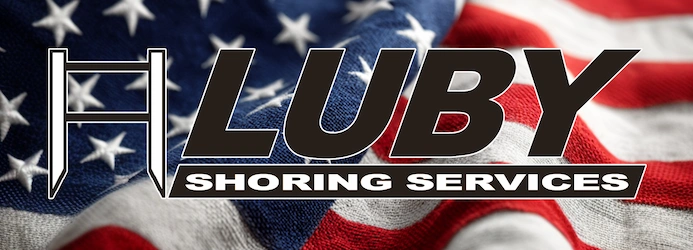To keep workers safe don’t set unrealistic goals or offer incentives for things to get done quickly or under budget.

Trenching is considered a highly-dangerous occupation in the construction field. The reality is that just one yard of cubic dirt can weigh as much as 3,000 pounds, which is enough to crush a worker or trap him underneath if the trench is compromised and gives in. That is why having the proper safety measures in place is so crucial to keep everyone safe on a trenching site.
Why Trench Safety is So Important
Fatal trenching incidents have as much as doubled in just the last year. OSHA, the Occupational Safety and Health Administration, insists that if better safety measures had been implemented, most of those accidents would not have happened. If trenching companies would do a better job of keeping sites safe, then the number of accidents would decrease significantly. Keeping your job site safe is not only a moral obligation, it is also a law. If an accident happens, it is possible for those in charge to face criminal charges.
Setting Realistic Time Frames
One of the biggest reasons that things go wrong is because trenching workers are often on tight schedules to get jobs done. When they are in a time crunch, it is not uncommon for them to cut safety corners to finish on time. That can lead to workers and managers being careless and making decisions based on time efficiency, rather than on the safety of employees. Make sure to set realistic goals when you are running a trenching operation. Scheduling strict time frames that are unrealistic will only jeopardize your workers and increase the likelihood of accidents.
Another reason that things go awry and workers get hurt is that supervisors and managers are often given incentives in the form of bonuses for getting a job done on time or even ahead of schedule. To cut costs, supervisors will bend the rules or put workers in riskier positions to get goals met and to reap the benefit. As a trenching company, you do want to set goals and to offer an efficient operation, but offering your supervisors and managers money to get it done quickly might not be the best way to ensure the safety of your overall operation.
Finally, it costs more to do things right. Having the proper safety measures in place is a little costlier for the company and hiring safety managers might seem like an additional cost that can hurt a company’s bottom line. But what will really put a kink in your budget would be if your operation was shut down, you are fined, or someone gets hurt and you face criminal prosecution.
Trenching is a highly dangerous but necessary component of construction. If you want to keep your workers and your operation safe, then don’t set unrealistic goals or offer incentives for things to get done quickly or under budget. Invest in your workers, and they will invest in your company. It will also ensure that the job gets done right and that everyone is much safer.
